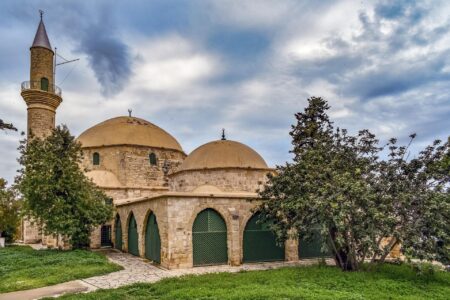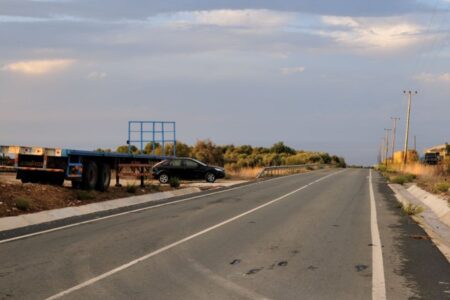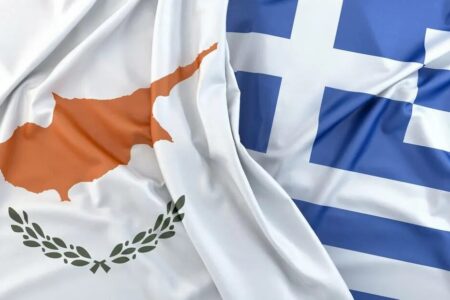Education in Cyprus has a rich and diverse history, with roots tracing back to ancient times. During antiquity, the island had educational institutions where philosophy, mathematics, and rhetoric were studied. The influence of Greek culture was significant, which shaped the educational traditions of the island.
In the Middle Ages, the education system in Cyprus was influenced by the Byzantine Empire and the Orthodox Church. Monasteries became centers of learning, where both religious and secular subjects were taught. During Ottoman rule (1571-1878), education retained a religious character, but secular schools also began to emerge. With the arrival of British administration in the late 19th century, the education system was significantly modernized and structured.
Contents
Modern education system
The modern education system in Cyprus is divided into several levels: preschool, primary, secondary, and higher education. Each level plays a crucial role in preparing children and youth for adult life and professional activities.
Preschool education
Preschool education in Cyprus plays a key role in developing basic skills and socialization in children, laying the foundation for their future academic and personal development. So preschool education covers children aged 3 to 5 years and includes nurseries and kindergartens.
Structure and organization
Preschool institutions in Cyprus can be divided into public and private. Public institutions are managed by the Ministry of Education, Culture, Sport, and Youth of Cyprus. Private kindergartens also play a significant role, offering various programs and services that cater to different needs and preferences of parents and children.
Public institutions
Public kindergartens provide free education for children aged 4 to 5 years. Recently, the government has extended this program to include children from the age of four. This expansion is of great educational significance, as it allows children to attend free kindergartens for two years, aiding their preparation for primary school and enhancing their social skills.
Private institutions
Private kindergartens offer a wide range of programs, including bilingual and specialized courses. These institutions often have flexibility in their curricula and teaching methods, allowing parents to choose a kindergarten that meets their expectations and the needs of their child. Tuition fees in private kindergartens can vary depending on the services offered and the level of the institution.
Curricula and teaching methods
Preschool education programs in Cyprus aim at the comprehensive development of children. They include teaching the basics of mathematics, language, natural sciences, as well as developing creative abilities and physical activity. Social and emotional skills, such as cooperation, self-control, and empathy, are also emphasized.
Individual approach
Many kindergartens in Cyprus apply an individualized approach to education, taking into account the unique needs and abilities of each child. This creates a supportive learning environment where every child can realize their potential.
Play-based learning
Play-based learning is an important component of preschool education. Games and active activities help children develop critical thinking, creativity, and social skills in a relaxed and engaging environment. Play-based methods also improve children’s concentration and memory.
Support
One of the priorities of the preschool education system in Cyprus is ensuring inclusivity and support for all children, including those with special educational needs. Special programs and measures are implemented for the early identification and support of children with various physical, intellectual, and emotional needs.
Early intervention programs
Early intervention programs aim to identify and address problems at an early stage, providing timely support and assistance to children. These programs include diagnostics, development of individualized education plans, and provision of specialized services.
Teacher training
Teacher training also plays an important role in ensuring quality preschool education. Teachers undergo specialized training and professional development to stay updated with the latest methods and approaches in early childhood education. This includes training in working with children with special needs and implementing inclusive practices.
Impact on family and society
Expanding access to preschool education has both educational and social significance. Providing free preschool education allows parents to return to work more easily, knowing that their children are in a safe and stimulating educational environment. It also promotes social justice by ensuring equal opportunities for all children, regardless of their socio-economic status.
Social benefits
The expansion of preschool education programs fosters better social interaction among children, develops a sense of community and tolerance. This is particularly important in Cyprus’s multicultural society, where children from diverse backgrounds and with different needs can learn and grow together, laying the foundations for a harmonious and inclusive society in the future.
Education on preschool in Cyprus plays a crucial role in shaping children’s personalities and abilities. Thanks to government efforts to expand access to free preschool education and implement inclusive practices, the preschool education system in Cyprus continues to evolve, providing children with a solid foundation for their future learning and success.
Primary education in Cyprus
Primary education in Cyprus covers children aged 5 to 12 years and includes six grades. It is compulsory and free for all children, ensuring equal access to education. Primary school plays a vital role in developing the basic knowledge and skills necessary for successful further education and personal growth.
Structure and curriculum
Primary education in Cyprus is organized to cover a wide range of subjects and ensure the comprehensive development of children. The main goal of primary education is to form basic academic and social skills in children.
Core subjects
The primary education curriculum includes the following core subjects:
- Greek language and literature: Teaching reading, writing, and literature.
- Mathematics: Developing mathematical skills and logical thinking.
- Natural sciences: Basics of biology, physics, and chemistry.
- History and geography: Studying the history of Cyprus, Greece, and the world, as well as geographical features.
- Physical education: Promoting physical activity and health.
- Foreign languages: Basics of English language education.
In addition to core subjects, the curriculum includes additional disciplines such as art, music, and technology. These subjects contribute to the development of children’s creative and technical skills.
Individual approach
One of the priorities of primary education in Cyprus is to ensure inclusive learning. This means that all children, including those with special educational needs, receive equal opportunities for education. Special programs and methods are implemented in primary schools to support and integrate all students.
Individualized education plans
For children with special educational needs, individualized education plans (IEPs) are developed, taking into account their unique abilities and requirements. Teachers and specialists work together to create the most favorable learning conditions for each child.
Specialized support
Primary schools employ specialists such as speech therapists, psychologists, and special education teachers who provide necessary support to children with special educational needs. This helps create an inclusive educational environment where every child feels included and supported.
Assessment and monitoring of performance
The assessment and monitoring system in primary schools in Cyprus aims to maintain a high standard of education and identify learning problems early. This allows for timely adjustments to the educational process and provides support to students.
Formative assessment
Teachers use formative assessment, which includes continuous monitoring of students’ progress, providing feedback, and adjusting teaching methods. This helps create a dynamic and adaptive learning environment.
Summative assessment
At the end of the school year, summative assessment is conducted, including exams and tests to assess students’ knowledge and skills in core subjects. These results are used to determine further educational needs and plan the educational process for the next year.
Role of teachers and professional development
Teachers in primary schools in Cyprus play a key role in the educational process. They not only impart knowledge but also develop important life skills in children, such as critical thinking, creativity, and teamwork.
Training and qualifications
All primary school teachers undergo special training and hold appropriate qualifications. They are required to continually enhance their qualifications by participating in various professional development programs to stay up-to-date with modern pedagogical methods and technologies.
Teaching methods
Teachers use a variety of teaching methods, including interactive and project-based methods that encourage active participation of children in the learning process. This makes learning more engaging and effective, and helps children develop independent thinking and problem-solving skills.
Impact on family and community
Primary education in Cyprus has a significant impact not only on students but also on their families and the community at large. The education system aims to make schools centers of community life, fostering social connections and active parental involvement in the educational process.
Role of parents
Parents play an important role in their children’s primary education. Schools actively engage parents in school events and educational programs, fostering stronger collaboration between school and family.
Social initiatives
Primary schools also participate in various social initiatives and projects aimed at developing local communities. This may include environmental projects, charity events, and programs promoting a healthy lifestyle.
Primary education in Cyprus is a fundamental part of the educational system, providing children with comprehensive development and preparing them for further education. Through inclusive approaches, qualified teachers, and diverse teaching methods, primary schools create favorable conditions for developing children’s core knowledge, skills, and social competencies. The education system continues to evolve, striving to meet high international standards and respond to the challenges of modern society.
Secondary education in Cyprus
Secondary education in Cyprus is divided into two main stages: gymnasiums and lyceums. It is aimed at providing students with both general knowledge and specialized skills needed for further education or entry into the labor market. Secondary education is compulsory and free for all children up to 18 years of age, ensuring equal access to quality education.
Structure and curriculum
Secondary education in Cyprus includes three years of study in gymnasiums and three years in lyceums. This system allows students to receive both general and specialized education, depending on their interests and future career plans.
Gymnasiums
Gymnasiums provide general education, covering a wide range of subjects such as Greek language, mathematics, natural sciences, history, foreign languages, and physical education. The goal of gymnasiums is to provide basic academic knowledge and prepare students for more specialized education in lyceums or vocational-technical schools.
Lyceums
Lyceums offer specialized programs that allow students to study specific subjects in depth, depending on their interests and career plans. There are various tracks, such as humanities, natural sciences, technical sciences, and economics. Students can choose courses that align with their future career goals and prepare for university entrance exams.
Inclusivity and student support
One of the key goals of the secondary education system in Cyprus is to ensure inclusive and equitable education for all students, including those with special educational needs. Special programs and measures are introduced to support and integrate all students.
Individualized education plans
For students with special educational needs, individualized education plans (IEPs) are developed, considering their unique abilities and requirements. Teachers and specialists work together to create the most favorable learning conditions for each student.
Specialist support
Schools employ specialists such as school psychologists, speech therapists, and special education teachers who provide necessary support to students with special educational needs. This helps create an inclusive educational environment where every student feels included and supported.
Assessment and performance monitoring
The assessment and monitoring system in secondary schools in Cyprus aims to maintain a high standard of education and identify learning problems early. This allows for timely adjustments to the educational process and provides support to students.
Formative assessment
Teachers use formative assessment, which includes continuous monitoring of students’ progress, providing feedback, and adjusting teaching methods. This helps create a dynamic and adaptive learning environment.
Summative assessment
At the end of the school year, summative assessment is conducted, including exams and tests to assess students’ knowledge and skills in core subjects. These results are used to determine further educational needs and plan the educational process for the next year.
Vocational-technical education
Vocational-technical schools in Cyprus offer programs focused on developing professional skills and preparing students for entry into the labor market. In recent years, these programs have been modernized to meet the demands of the modern market and include training in digital skills.
Programs and tracks
Vocational-technical schools offer a variety of programs covering fields such as engineering, information technology, hospitality, tourism, and many others. Students can choose courses based on their interests and career plans.
Collaboration with employers
Vocational-technical schools actively collaborate with employers and industrial enterprises to ensure the relevance and practical orientation of their programs. This helps students gain real-world work experience and improve their chances of employment after graduation.
Recent reforms and initiatives
The Ministry of Education, Culture, Sport, and Youth of Cyprus is actively working on modernizing the secondary education system, introducing innovative approaches and programs. This includes the development of digital skills, the introduction of new technologies, and the improvement of school infrastructure.
Digital transformation: The Ministry actively promotes the digitalization of education, integrating information and communication technologies into the learning process. This includes the use of interactive whiteboards, online learning platforms, and digital textbooks.
Infrastructure projects: One of the priorities is improving school infrastructure, including the construction of new buildings and the modernization of existing ones. This ensures comfortable learning conditions and contributes to creating a favorable educational environment.
Impact on family and community
Secondary education in Cyprus has a significant impact on families and the community at large. The education system aims to make schools centers of community life, fostering social connections and active parental involvement in the educational process.
Role of parents: Parents play an important role in their children’s secondary education. Schools actively engage parents in school events and educational programs, fostering stronger collaboration between school and family.
Social initiatives: Secondary schools also participate in various social initiatives and projects aimed at developing local communities. This may include environmental projects, charity events, and programs promoting a healthy lifestyle.
Secondary education in Cyprus is an important stage in the educational system, providing comprehensive development of students and preparing them for further education or professional activities. Through inclusive approaches, qualified teachers, and diverse teaching methods, secondary schools create favorable conditions for developing students’ core knowledge, skills, and social competencies. The education system continues to evolve, striving to meet high international standards and respond to the challenges of modern society.
Higher education in Cyprus
Higher education in Cyprus is a key component of the national education system and aims to become an international educational hub, offering students a wide range of programs and disciplines. In recent years, the higher education sector in Cyprus has significantly grown and modernized, leading to improved quality of education and an increase in the number of international students.
Structure of higher education
Higher education in Cyprus is organized according to a three-tier system: bachelor’s, master’s, and doctoral degrees.
Bachelor’s programs
Bachelor’s programs cover a wide range of disciplines, including humanities, social sciences, natural sciences, engineering, and business and management. Programs typically last four years and include both theoretical and practical courses. The primary goal of bachelor’s programs is to provide students with foundational knowledge and skills necessary for successful employment or further study.
Master’s programs
Master’s programs focus on in-depth study of a chosen field and the development of professional skills. The duration of a master’s program is typically one to two years. These programs include both coursework and research projects, as well as the writing and defense of a master’s thesis. A master’s degree allows students to specialize in a specific area and prepares them for professional careers or doctoral studies.
Doctoral programs
Doctoral programs offer advanced research in a chosen field and require the writing and defense of a doctoral dissertation. The duration of a doctoral program is three to five years. Doctoral programs aim to prepare highly qualified specialists and researchers capable of conducting independent research and contributing to the advancement of their field of knowledge.
Internationalization and attraction of international students
Cyprus is actively working to attract international students and internationalize its programs.
English-language programs
One of the key factors attracting international students to Cyprus is the availability of English-language programs. Universities offer a wide range of bachelor’s and master’s programs in English, making them accessible to students from around the world. This allows students from different countries to receive quality education and adapt to an international academic environment.
Partnerships and collaboration
Universities in Cyprus actively collaborate with foreign universities, participate in international research projects, and educational exchange programs. These partnerships contribute to enhancing the quality of education, expanding scientific research, and strengthening international ties. Universities also participate in various European programs, such as Erasmus+, which allows students and faculty to exchange experiences and knowledge with colleagues from other countries.
International reputation
Higher education institutions in Cyprus are highly ranked in international rankings, reflecting the high quality of education and research. Many universities in Cyprus are among the best in the world, confirming their academic reputation and attracting students from different countries.
Reforms and modernization
The Ministry of Education, Culture, Sport, and Youth of Cyprus is actively working on reforms and modernization of the higher education system. Innovative approaches and programs are being introduced to improve the quality of education and meet the demands of the modern labor market.
Digitalization of education
One of the priorities is the digitalization of higher education. Universities are integrating information and communication technologies into the learning process, including the use of online learning platforms, digital textbooks, and interactive teaching methods. This allows students to access educational resources anytime and anywhere, which is particularly important in the context of the global pandemic.
Infrastructure projects
To ensure comfortable learning and research conditions, universities are actively improving their infrastructure. This includes constructing new buildings, modernizing existing educational and research laboratories, and creating modern student dormitories. These measures aim to create a favorable educational environment and attract more students.
Impact on economy and society
Higher education in Cyprus has a significant impact on the country’s economy and society. The education sector contributes to job creation, attracting foreign investment, and the development of scientific research.
Economic contribution
Higher education is an important sector of the Cypriot economy. Attracting international students, developing research projects, and partnering with foreign universities contribute to increased revenue and job creation in the education sector and related industries. Higher education institutions also contribute to the development of local communities, stimulating economic activity and innovation.
Social initiatives
Universities in Cyprus participate in various social initiatives and projects aimed at improving the quality of life for local residents. This includes environmental projects, charity events, and programs promoting a healthy lifestyle. Higher education institutions also play an important role in shaping a tolerant and inclusive society, fostering cultural and social interaction among students and faculty.
Higher education in Cyprus continues to develop actively, striving to meet high international standards and attract students from around the world. Through innovative approaches, quality educational programs, and active collaboration with foreign universities, the higher education system in Cyprus makes a significant contribution to the economic and social development of the country. Cypriot universities create favorable conditions for learning and research, helping to form highly qualified specialists and researchers ready to contribute to the development of global society.
The Cypriot education system is actively evolving and adapting to modern demands and challenges. Thanks to the efforts of the government, teachers, and educational institutions, education in Cyprus ensures high-quality learning, inclusivity, and accessibility for all citizens. This contributes not only to the academic and professional growth of students but also to the overall social and economic development of the country.
The education system in Cyprus continues to improve, introducing innovative approaches and supporting the development of digital and professional skills, making it attractive to both local and international students. This, in turn, helps to form qualified specialists ready to contribute to the development of Cypriot society and economy.
















